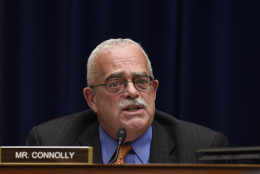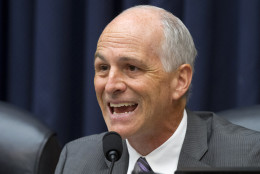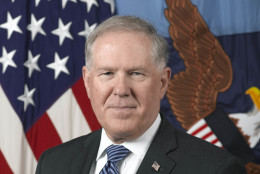Congress
-
While most of Congress seems mired in the partisan minutiae of a new administration, at least two members are looking towards the stars. Sen. John Cornyn (R-Texas) and Rep. John Culberson (R-Texas) have introduced a bill that would require NASA to develop a specific plan to put an astronaut on Mars. Culberson discusses the Manifest for Human Spaceflight Act on Federal Drive with Tom Temin.
February 21, 2017 -
Want to know how pending legislation could affect your bottom line? Check out our federal employee bill tracker for an at-a-glance update of where each piece of legislation currently stands.
February 16, 2017 -
When it comes to defending the country from cyber attack, Defense officials have made abundantly clear that they plan to leverage the military’s National Guard and reserve components as much as possible, including, most recently, by tasking the Army Guard and Reserve to build 21 cyber teams on top of the 133 U.S. Cyber Command had planned as part of its Cyber Mission Force.
February 14, 2017 -
Battling on both the judicial and immigration fronts, the Trump administration over the past week faced a legal setback to its action on immigration from seven countries. The issue was before the Ninth Circuit Court of Appeals, likely en route to the Supreme Court.
February 09, 2017 -
Rep. Gerry Connolly (D-Va.) is once again reintroducing the Federal Adjustment of Income Rates (FAIR) Act. This time, Connolly's bill proposes a 3.2 percent pay raise for federal employees in 2018.
January 31, 2017 -
The House Armed Services Committee’s top Democrat said Thursday that he plans to reintroduce legislation that would allow the Defense Department to conduct a new round of base realignments and closures (BRAC).
January 27, 2017 -
Frank Kendall, the undersecretary of Defense for acquisition, technology and logistics, used his final public remarks as Pentagon acquisition chief Tuesday to argue that DoD has made significant, demonstrable progress in improving outcomes from its procurement system, and that if Congress wants to help, it should largely stay out of the way.
January 18, 2017 -
Sen. John McCain (R-Ariz.) on Monday became the first senior political leader to sketch out a detailed vision for what Defense budgets might look like under a Republican-controlled government.
January 17, 2017 -
Just hours after the conclusion of James Mattis' confirmation hearing to be the next secretary of Defense, a broad bipartisan majority of 81 senators voted Thursday to make an exception from the seven-year cooling off period for military officers and allow him to become the department's top civilian leader.
January 13, 2017 -
Congress’ two defense policy committees were set to meet Thursday to consider whether retired Gen. James Mattis should be the next secretary of Defense, something both houses of Congress will have to approve since his confirmation would require the suspension of a federal law that demands military officers be out of uniform for seven years before they become the military’s civilian boss.
January 12, 2017 -
President Obama's 2.1 percent pay hike may be the last feds see for awhile from Congress, says Jeff Neal, former DHS chief human capital officer.
January 10, 2017 -
A declassified report the intelligence community is set to release to Congress and the public next week on alleged Russian interference with the 2016 presidential election will assert that cyber attacks were only one part of a complex and adeptly executed information campaign — one that the nation’s top intelligence officer says the U.S. is inadequately equipped to counter.
January 06, 2017 -
New administrations and new Congresses always bring a new tone and zeitgeist to Washington. Maybe we can update the vocabulary or at least find new clichés.
January 03, 2017 -
The first order of business for the 115th Congress will be conducting confirmation hearings for some of Trump’s nominees and addressing the repeal of Obamacare.
December 29, 2016 -
The 2016 update to the Navy Force Structure Assessment, sent to Congress last week, asserts the service needs a fleet of 355 ships in order to adequately perform its missions. That’s a big change from the 2014 plan of 308 ships the Navy has been building toward.
December 19, 2016















